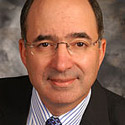04:47 PM
Finding Value in an Ever-Efficient World
I recently attended a conference at which a presenter discussed a new view of operational management. The concept was this: Instead of developing a permanent core center of excellence within an operating group and consistently striving for operational efficiency, the speaker said, an organization should treat the operation as a life cycle with developmental, nurturing and maturity stages. Each of these stages requires a specific set of needs, goals and technologies, which change as the business, product and operations evolve.
I do not know why this concept took me by surprise, except that throughout my 20-plus-year history on the Street, I never really looked at operations that way. I have analyzed product and technology maturity curves where products began as concepts on a spreadsheet, grew to a wider audience and needed a departmental technology solution, and finally matured into a commodity product needing an enterprise-class scalable solution. But an operation?
My experience was that a few smart folks would develop the processing model and that an operational professional would quickly take over and manage it. The operation was run as a business, searching for efficiencies, redesigning processes when needed, and bringing on new staff as the existing staff were promoted or moved on. The operation, however, would stay constant, and, except for the typical office shuffling and political fallout, people and positions generally stayed put.
This new model is different. It looks at the operation with the view that it is not permanent - that operations, like products, have life cycles and, depending upon their stage in that life cycle, need change.
In this view, transitional people set up the operation. These people are trained to develop and renovate operations and build the processes. Once the operations are running smoothly, they leave. But before they leave the operation, they transition it out of a metropolitan area, into a lower-cost region, and staff it with more operationally focused individuals.
This second group hones the operation further, automating it, reducing costs, embedding quality, rounding off rough edges, documenting processes fully, and turning the operation into a scalable, cost-effective business. But this is not the end. Once bulletproof and built for speed, the operation is sent even further away - to a much lower-cost environment - possibly onshore, possibly offshore or possibly to a third-party.
The process engineers build the operation, the operational team streamlines it and the outsourcing team takes it away. Create, build and deploy.
From the perspective of the past few years, this model doesn't seem revolutionary, or absurd; it seems very natural, almost simplistic. But, this model is tremendously powerful - and universally applicable - not only to our business but also our careers.
We work in an outsource-prone environment, and life has changed from being about being good at a function, a process or an operation, to being good at transitioning a function, a process or an operation - from processing to designing, from doing to transitioning, from working to training workers.
Life is no longer about being good at clearing, accounting or programming - a computer, or someone in Arkansas, India or at an outsourcer, can do that. The key is being able to develop processes, stabilize them, document them and prepare them for departure, whether it is bond clearing, Nostro settlement or equity corporate actions. To remain critical, we need to be about process improvement, and not necessarily about the process or the product itself.
If what we do can be automated, outsourced or done by a lower-paid party, we have to assume it will be. So what is the moral? The moral is to remain at the cutting edge and add value. If we are only a high-priced cog in a low-cost wheel, then we need to re-examine our value before someone else does it for us. What was valuable today will most surely be tomorrow's outsourced commodity, and if we don't constantly reinvent ourselves, that value line will quickly pass us by.
Larry Tabb is founder and CEO of Westborough, Mass.-based The Tabb Group, a financial-markets strategic-advisory firm. [email protected] Larry Tabb is the founder and CEO of TABB Group, the financial markets' research and strategic advisory firm focused exclusively on capital markets. Founded in 2003 and based on the interview-based research methodology of "first-person knowledge" he developed, TABB Group ... View Full Bio






















